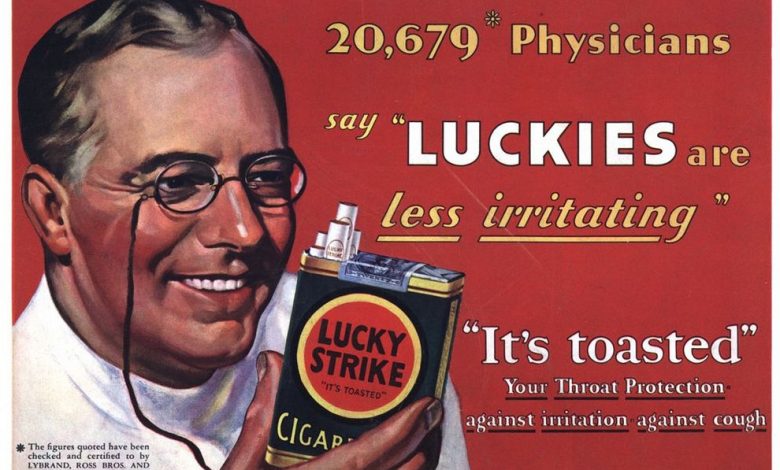Scrubbers: the industrialisation of pollution or saviour of the planet?

It has been a brutal month for purveyors of open-loop scrubbers. Yes, sales tills continue to ring, with many manufacturers now saying they’re sold out through to mid-2020. However, the level of abuse aimed their way has been stunning.
I’ve been at a number of conferences in October and have overheard open-loop scrubbers variously described as “towers with showers”, “the industrialisation of pollution”, or even more pertinently by Euronav’s Paddy Rodgers who argued at the Global Maritime Forum in Hong Kong that vessels equipped with open-loop scrubbers could well become “the ships that died of shame” once the general public finds out how this technology actually works.
Much of the debate around scrubbers reminds me of those old cigarette adverts (pictured) where doctors endorsed brands, something perhaps also not lost on Nikolas Tsakos, president and CEO of Tsakos Energy Navigation Ltd (TEN) and chairman of INTERTANKO, who last month likened scrubbers to “inventing a new drug that perhaps will kill one of the illnesses, but will kill the patient through another illness”.
At our own Maritime CEO Forum, also in Hong Kong this month, the heat was also on scrubber manufacturers.
Bjørn Højgaard, CEO of shipmanager Anglo-Eastern, predicted a global ban on open-loop scrubbers within the next three to five years, and also warned that maintenance costs of these exhaust gas cleaning systems could be a whopping 10 times higher than predicted.
At the same event, Mats Berglund, CEO of Hong Kong’s largest shipping line, Pacific Basin, and a strong opponent of scrubber technology, argued that all scrubbers do is get ships to speed up and use more fuel.
“Every operator with a calculator makes a voyage calculation and decides the speed on two factors – the freight rate and the price of bunkers,” he explained, adding: “To argue that sulphur is environmentally friendly is incorrect as they will consume more fuel and go faster. It comes across as promoting scrubbers as a clean initiative, but it really is not, as they go fast. HFO should have been banned overall.”
The irony is that even the most determined opponents of scrubbers are likely to have to order some in merely to keep up with rivals and meet charterers’ various demands, a point not lost on Jack Hsu. The head of the Hong Kong Shipowners Association and Oak Maritime boss said at the same forum that while he was not a fan of the technology as a public company from a hedging perspective he said he needed to look into them. The folk at consultancy Maritime Strategies International (MSI) would endorse this point of view, predicting in an article for Splash today that scrubber-fitted bulkers will enjoy a very healthy time charter premium.
Scrubbers will no doubt form much of the discussion at next week’s 73rd gathering of the Marine Environmental Protection Committee (MEPC) taking place in the London headquarters of the IMO.
Ahead of MEPC the recently created marine scrubber advocacy group, Clean Shipping Alliance 2020 (CSA2020), has come out and argued that scrubber washwater is not harmful to the sea.
The grouping, which includes Carnival, Oldendorff, Cargill, and Trafigura among its founding members, issued a statement this week claiming the small amounts of sulfate contributed by exhaust gas scrubbing are “insignificant and benign”.
Splash will be reporting from MEPC all next week.
